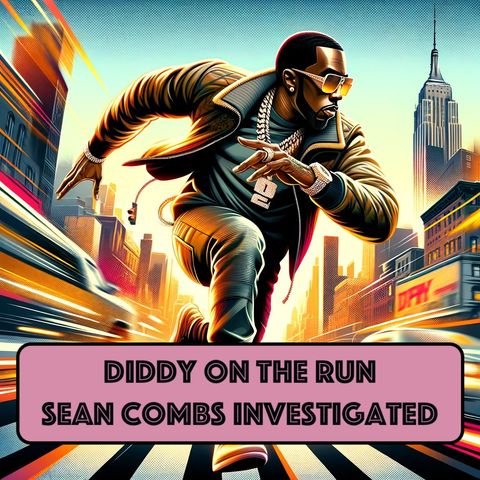"Diddy's Unidentified Accusers: Shielding Identities or Credibility Concerns?"

Descarga y escucha en cualquier lugar
Descarga tus episodios favoritos y disfrútalos, ¡dondequiera que estés! Regístrate o inicia sesión ahora para acceder a la escucha sin conexión.
"Diddy's Unidentified Accusers: Shielding Identities or Credibility Concerns?"
Esta transcripción es generada automáticamente. Ten en cuenta que no se garantiza una precisión absoluta.
Descripción
In legal scenes involving renowned musician Sean Combs, also known as 'Diddy,' there is an increasing prevalence of unnamed accusers. These anonymous individuals allege claims of sexual abuse by the...
mostra másLegal teams representing these anonymous accusers have, so far, maintained their client's anonymity, but will that privacy hold as proceedings progress? Defense attorneys for Combs have certainly been contesting the continuation of this anonymity. They argue that the party representation, in this case, marks a departure from the standard legal practice of open justice, where the identities of all involved parties are made transparent.
This case has put a spotlight on the real tensions between two principal aspects of legal ethics – rights to privacy and the quest for justice. The use of pseudonyms or anonymity in court proceedings pits the public's right to an open court process against an individual's right to privacy - especially those who have been purported victims of sexual assault. In abuse cases, sometimes the law allows victims to use pseudonyms to prevent further trauma and to encourage reporting of such cases.
However, an argument raised often by those against pseudonyms is that this provision may be used as a means to initiate unjust accusations maliciously. In situations where the accused is a public figure, like Sean Combs in this instance, the issue of anonymity becomes more complex. There is conjecture that anonymity can create an environment that encourages false accusations against celebrities for personal gain.
As the legal battle continues, it remains remarkable how it reflects the broader conversations surrounding how society and legal systems treat sexual abuse victims. Should they keep their anonymity, making it easier for them to step forward? Or does this provision inadvertently shelter potentially baseless accusations? These questions shape not only the proceedings involving Sean Combs but also future sexual abuse cases against other high-profile individuals.
It is also worth mentioning that permitting anonymity can be seen as a critical pathway to ensure alleged victims of sexual abuse can seek redress without fear of societal backlash and victim-shaming. Yet, the legal system also holds a duty to maintaining a precedent of fairness for both the victim and the accused.
In conclusion, the unfolding lawsuits against Sean Combs have brought into sharp focus the ongoing debate on if and when anonymity should be granted in court cases. As of now, no concrete conclusion has been reached, setting the stage for potentially precedent-setting outcomes.
Información
| Autor | QP-3 |
| Organización | William Corbin |
| Página web | - |
| Etiquetas |
Copyright 2024 - Spreaker Inc. an iHeartMedia Company
